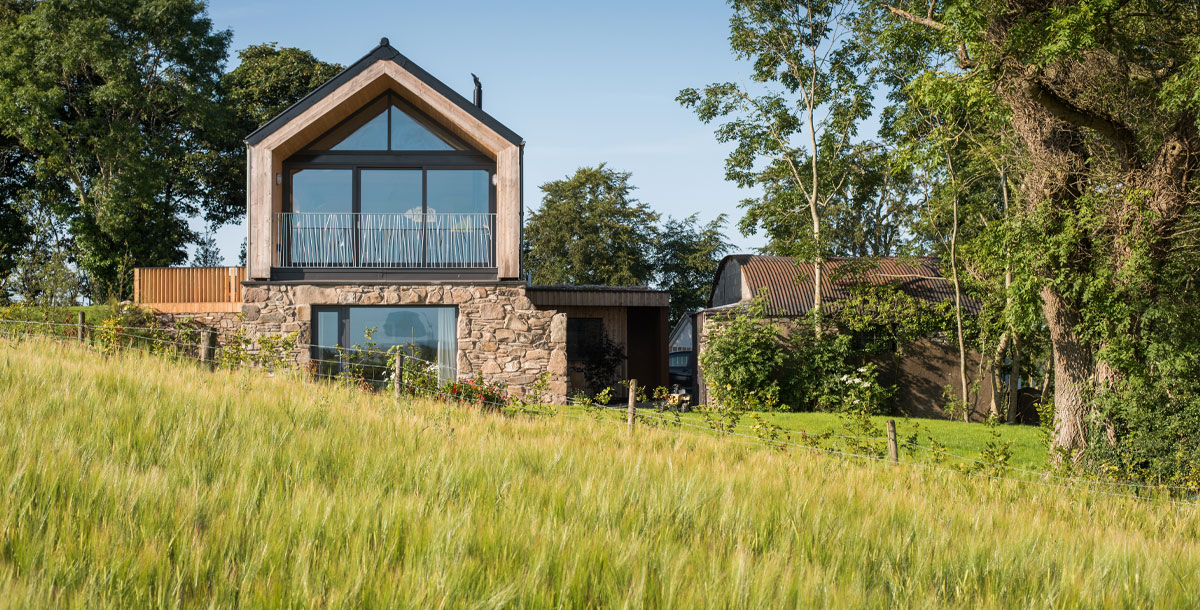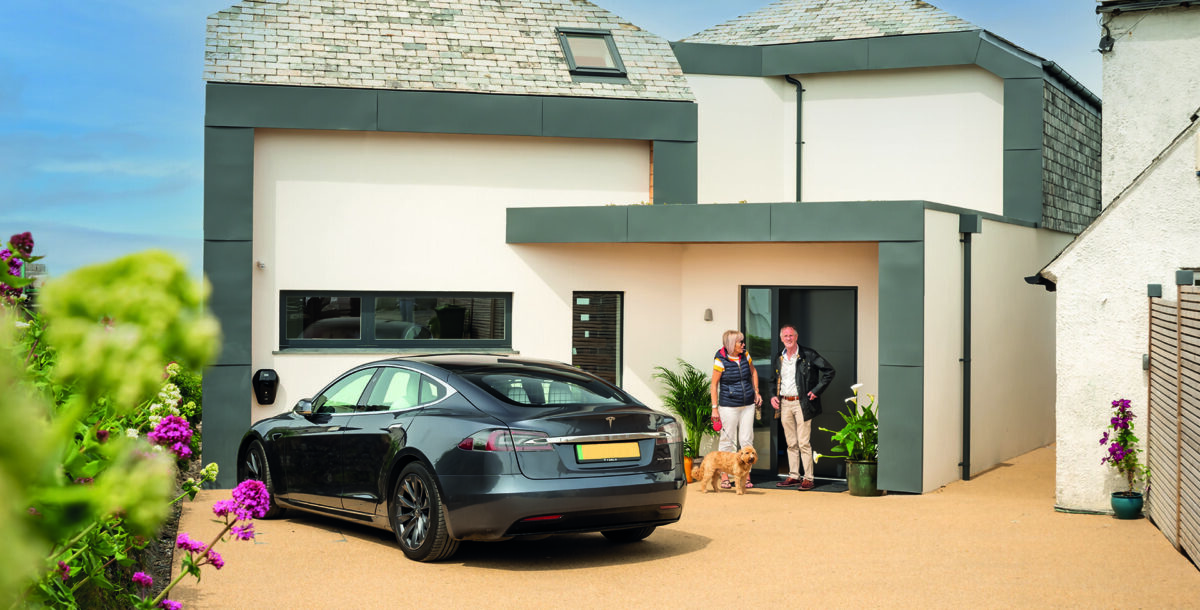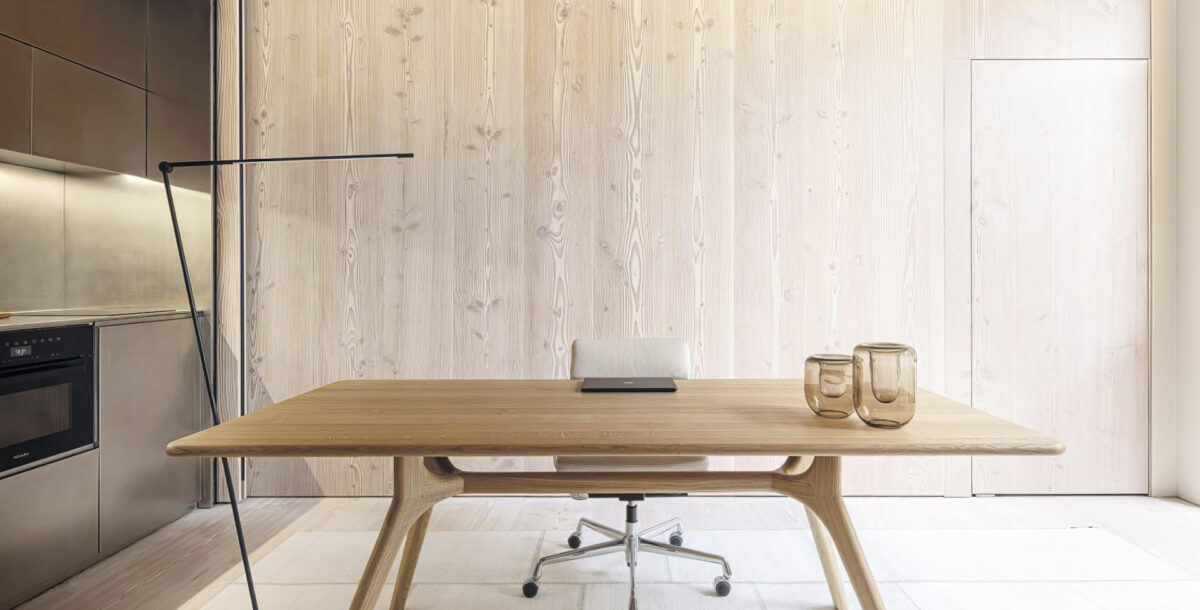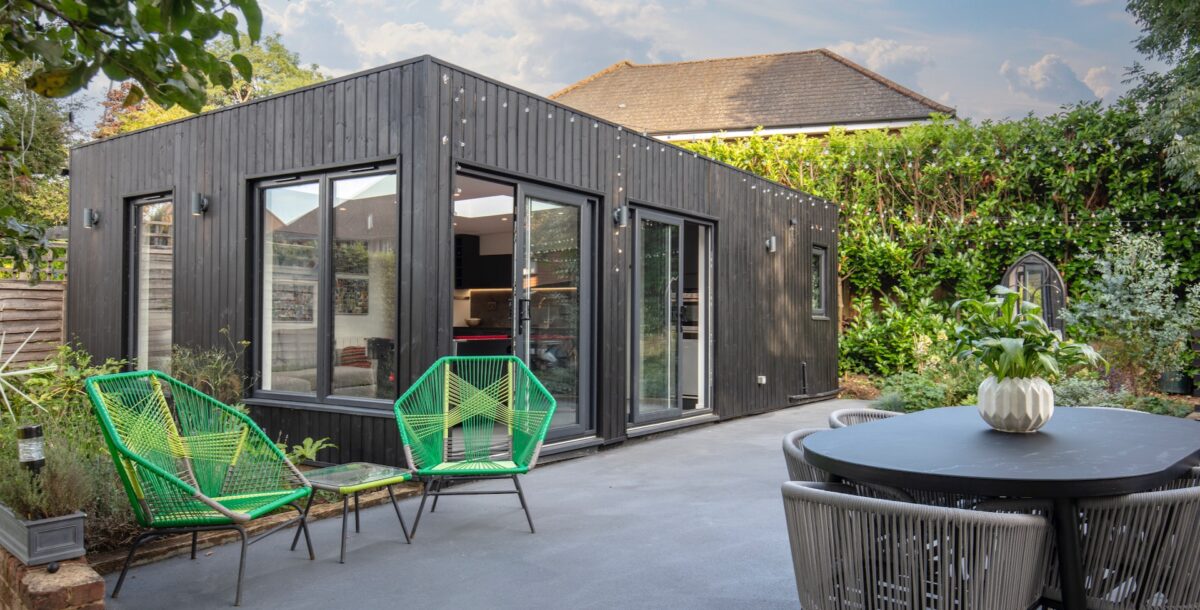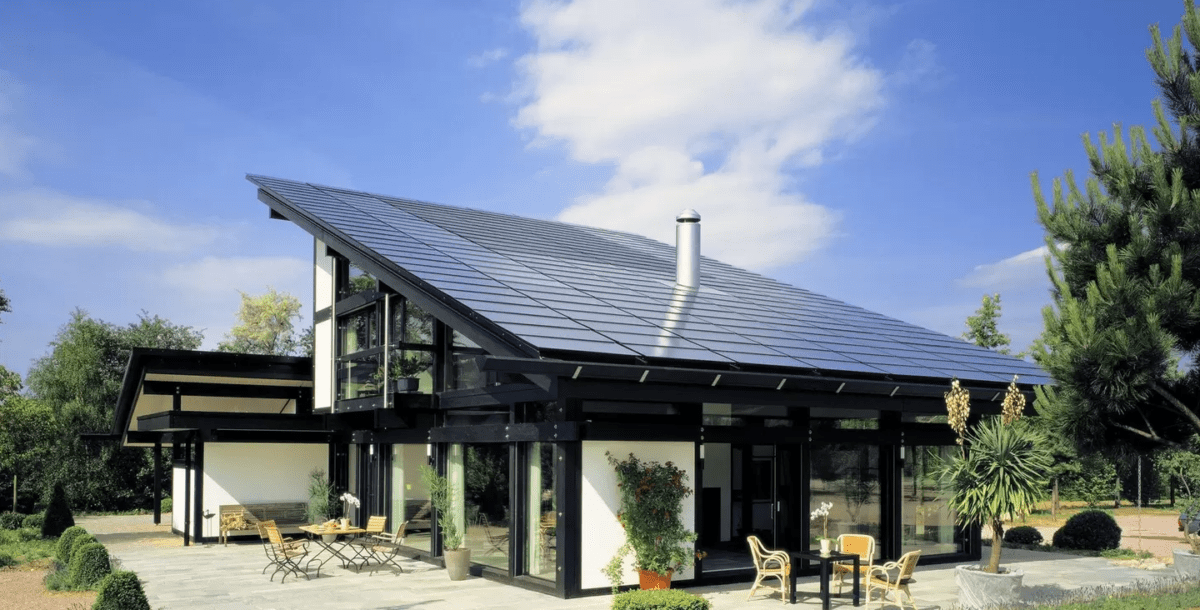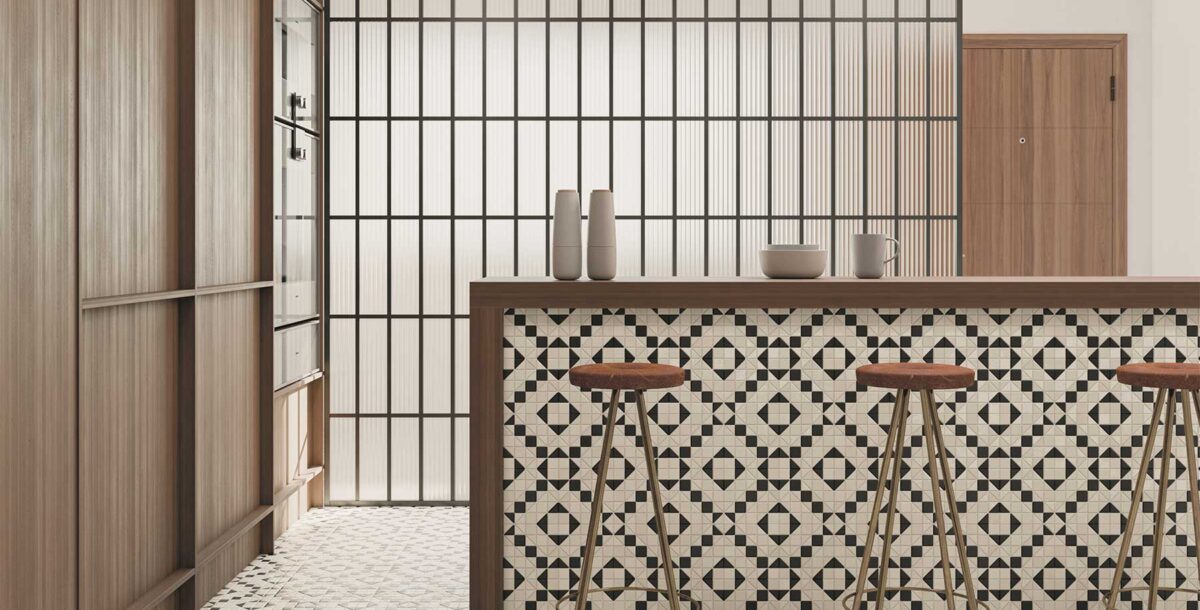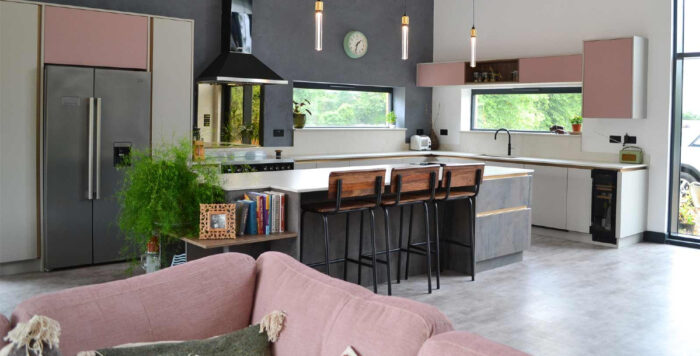How to project manage a self build
Ensure your build comes in on time, within budget and is everything you dreamed of
Making sure that the people and materials needed to carry out each stage of a self-build, renovation or extension are in place at the right time, and at the right price, is fundamental to the smooth running of your project. It’s also essential that all the legal conditions such as planning permission and Building Regulations are in place, along with the necessary contracts, insurance and warranties.
Time well spent
Planning your project well in advance of the construction work will help everything run smoothly. This is the time to thoroughly research what’s involved and make as many decisions as possible. Elements to consider and confirm include: finalising your budget; hiring a project team; approving the design and layout; submitting a planning application if required; choosing the materials – even including interior design elements such as the colour schemes.
Take as much time as you need at this early stage so you avoid making hasty and potentially costly decisions later on. Otherwise, you will almost certainly extend the project completion date and overspend your budget.
Go it alone or get help?
There are several options available when it comes to the project management of your build. You may wish to take on this aspect yourself, particularly if you have previous experience and the project is straightforward. Be realistic about your level of knowledge, resilience, and how much time you can devote to the work. It is time-consuming and can be stressful. If you do decide to take on the task, it is still worth consulting with a professional project manager at the beginning of the process for advice.
Your architect could take on all or part of the role. Or you could employ someone who specialises in construction project management. Though you will need to factor the cost of a project manager into your budget, an experienced professional could save their own fee by keeping everything on track, avoiding mistakes and negotiating the best deals.
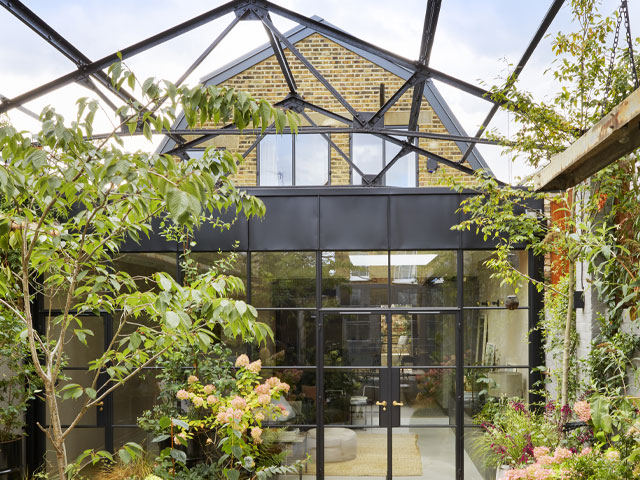
The Grand Designs converted dairy in south London. Photo: Darren Chung
Improve your knowledge
If you are going to manage your project, it’s crucial you know how to run a construction site. The National Self Build & Renovation Centre offers courses on the subject. They include information on the skills you’ll need such as scheduling, site control and organising budgets. You need to know your limits and it’s important that you have a sensible grasp of what you can and can’t do.
Establish an agreement
You must have a construction contract in place before work gets underway. Avoid hiring a builder or contractor who is reluctant to use one. Make sure it covers everything you would like done. This might include the supply of materials and the removal and disposal of waste. The document sets out the key responsibilities of client and contractor, which should mitigate disputes arising due to a lack of clear guidelines. It also details how any disputes that crop up should be managed, and clearly defines the roles and responsibilities of each party.
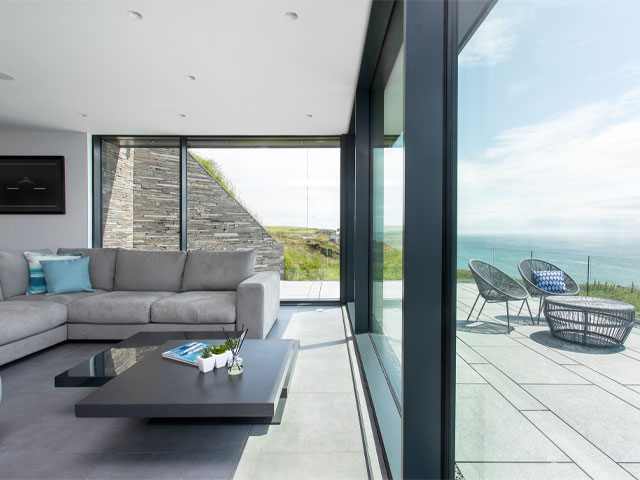
The Grand Designs Galloway clifftop house. Photo: Douglas Gibb
Project protection
Also called contract works insurance, a site insurance policy will protect you and your project against a range of risks that could affect the property. These include fire and environmental issues such as storms and flooding. It also covers temporary buildings on the site, such as a site office or a caravan, as well as whatever you are constructing. Make sure the insurance includes professional fees, plot clearance and debris removal in the event of a claim.
Your cover should also protect you against theft – paying out if someone comes onto the site and steals tools or materials. In most cases this will include personal effects belonging to employees, though the limit is often rather low. Of course, it’s up to you to keep the site locked when not in use, and most insurers will insist on a high level of security.
If you’re building a home, as soon as the deeds for the plot are in your name you will be responsible for the site, so think about how you are going to get protection from the start. Your tradespeople and contractors may have their own insurance, but the buck for any accidents may still stop with you.
It’s essential to have public liability cover in place from the start and for the duration of the build. If someone, even a trespasser, came on to the site and injured themselves you might be held legally responsible and could end up with a big compensation bill.
It is possible to obtain policies that last 12, 18 or 24 months, and if your project completes before the cover ends you should be able to convert the remaining time into regular buildings insurance.
Alternatively, if your scheme overruns, you should be able to extend shorter policies. The level of indemnity varies between policy providers, but will typically cover:
- Building works
- Materials
- Plant, tools and equipment
- Temporary homes, such as a caravan, plus employees’ personal effects
- Personal accident
- Public and employers’ liability
- Legal expenses
- Your personal possessions
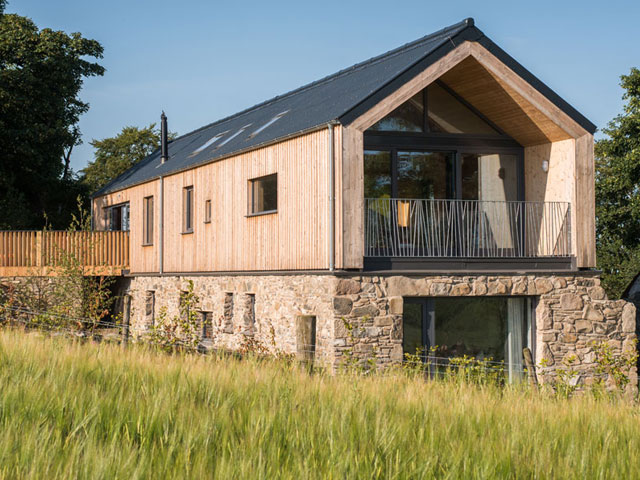
The Grand Designs Ballygowan barn in County Down, Northern Ireland. Photo: Andrew Wall
A secure future
A structural warranty is an insurance policy designed to protect you against defects in new buildings, normally for a period of ten years after completion. It is best to buy the policy before construction begins.
Most mortgage lenders and banks require a structural warranty to be in place before they will provide a mortgage on a self-build. You can also buy a policy to cover extensions and loft conversions.
Stay on schedule
Drawing up a document of the project costs and timeline has advantages. ‘Compile a schedule of works to be completed so that your build team is 100 per cent clear about what is included in your contract sum,’ says Jay Bhudia, a chartered quantity surveyor at Quantum Experts.
This can be created by an architect or a specialist quantity surveyor and will form part of your construction contract. It will be referred to by your project manager, if you have one, if questions arise over how works should be completed, by whom or for how much.
As the schedule contains cost details for each section of your project, it can be used to calculate the value of the completed build. This valuation will help you assess how much to pay your builder, ensuring that you only pay for each finished stage. It also signals when to order materials – you don’t want supplies arriving on site too early or too late.
CONTACTS FOR CONTRACTS
- Federation of Master Builders members can issue an insurance backed warranty on the building work that they carry out, from new homes to extensions. This provides protection in the event of a builder going out of business or being unable to complete the work.
- The Joint Contracts Tribunal produces contracts, guidance notes and other standard forms of documentation.
- The National House Building Council provides warranty and insurance cover for builders, developers, self-builders and custom builders.
- Self-Build Zone offers site insurance, structural warranties and contract templates.

